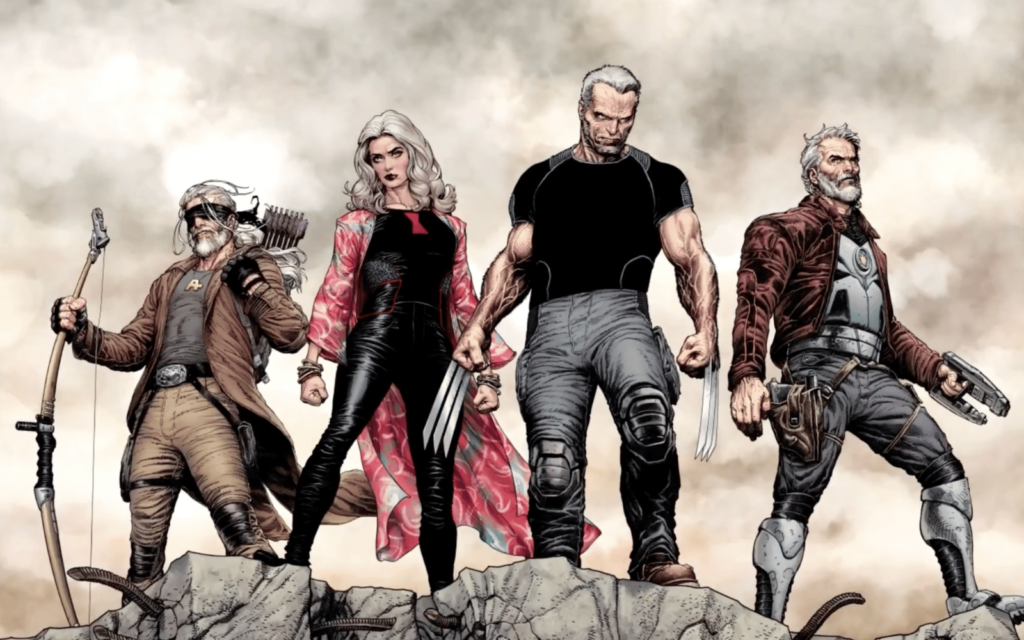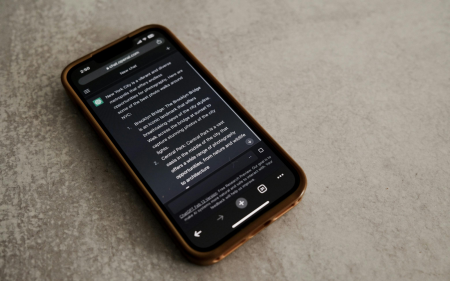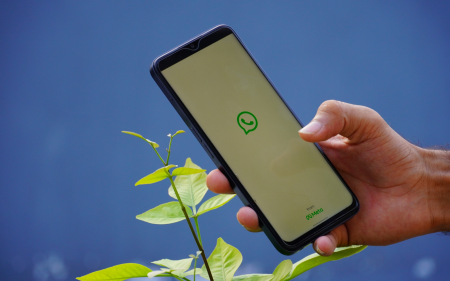Marvel, even before it was swallowed by Disney, has always been keen on telling extended, interconnected stories. The company does it well. That’s how something like Marvel’s Wastelanders, a series of narrative podcasts, came about.
Wastelanders has a little something in common with a comic book series of the same name but its roots lie in the iconic Marvel comic series Old Man Logan. It’s dark. Like… DC dark. An aging Wolverine sets out on one last heroic quest as a way to atone for… well, you’ll see. The comic series involves one of Peter Parker’s descendants, some truly disturbing revelations about the Incredible Hulk, and the reason why Logan has been dormant for so long.
The podcast series (because calling it an ‘audio drama’ isn’t cool enough, we guess) is related but the darker tone of the original comic series is held at arm’s length. It’s also massively expanded and Wolverine isn’t the main focus. Up first, amazingly, is Peter Quill of the Guardians of the Galaxy.
Old Man Star-Lord
Each of these podcasts consists of ten episodes. They’re all self-contained, meaning you could listen to one and then just bail on the entire thing. But you probably won’t. For starters, each has its own tone and setting. Here you’ll meet Star-Lord (Peter Quill, voiced by Timothy Busfield) and Rocket (Chris Elliot) as they touch down on Earth in search of an artefact for the Collector. They’re on a time limit. Failure to locate their MacGuffin results in their heads being lopped off. Along the way the pair encounter a few familiar faces but it’s Doctor Doom and Craven the Hunter that present the greatest threat.
Also present is a character called Cora, a Rigellian Recorder, a character that makes it possible to narrate settings and situations that are inherently visual. Marvel’s presentations, whether on-screen or in print, rely on spectacular visual accompaniment to get their point across. That’s harder to achieve in an audio-only format, meaning a few shortcuts are needed. Throughout the series, listeners will encounter jarring moments that yank them out of the moment. That’s because the podcast’s writers can’t seem to let go of the need to do more than sketch and image and let the imagination fill in the rest.
Still, there’s substantial emotional investment possible in this semi-Western quest to liberate the folks of Doomwood from the heavy hand of Victor von Doom and Craven the Hunter. Peter Quill is, generally, an impulsive moron but the interplay between him and Rocket will hit you in the chest a few times. This podcast is also a decent setup for what’s coming later. Keep an eye out for Donald Glover’s enthusiastic take on an original character.
Old Man Hawkeye
The second Wastelanders series involves Clint Barton, otherwise known as Hawkeye. Perhaps the best thing about this series is how it starts out with relatively unknown and underrepresented characters. It manages to make these initial episodes (Star-Lord, Hawkeye, and Black Widow, below) the strongest of the lot. This one fills in some of the background of how the world came to be in the condition it is. The events of V-Day (Villain Day) are explored via flashbacks that serve to illustrate how tortured Hawkeye (voiced by Stephen Lang) is.
They also serve to point out what Barton has been up to in the 30 years since the villains took over. Hint: He hasn’t been especially nice. If you’re familiar with Barton’s turn as Ronin, you’ll have some idea where this is going. But there’s also a travelling circus involved (helmed by Blob, of all people), a considerable exploration of what it means to be a family, and an emotional climax you probably won’t see coming. The epilogue, though? That you’ll see coming a mile away, even if Barton himself couldn’t.
Old Woman Black Widow
From the carnival grounds, Wastelanders takes listeners to the Onar, a massive building in New York. From the gritty, grimy outdoors listeners are dumped into a techno-thriller involving drugs, nano-tech, advanced surveillance, and massive waves. Yes, really.
The unusual aspect of Black Widow’s arc is that it’s — for the majority — not told from the perspective of any of the main characters. This is a narrative necessity (and we can’t really explain why without wrecking things) but that puts the focus on some of the secondary characters. At least one of them is really easy to hate so it’s disappointing when they’re redeemed simply because they’ve become useful to the story.
As with each of these podcasts, there will be jarring moments where a character points out the obvious thing simply because the writers can’t bring themselves to trust the listener. A strong performance from Susan Sarandon and a really surprising ending sets up for the final (so far) outing of the series. Worth listening to as a standalone but do it in sequence if you’re planning on listening to all of it.
Read more: It’s just a phase: Here’s how you should watch Marvel’s MCU Phase One through Three
Old Man Wolverine
We’ve covered most of Old Man Wolverine’s Wastelanders arc, though Marvel has taken a considerable amount of the dirt off his tale here. The events that led to Logan’s presence in the Wasteland are truly horrifying and there was the potential to do something really effective with the trauma Wolverine would have experienced here. Unfortunately, this entire series counts as a wasted opportunity.
Make no mistake, hearing James Howlett (voiced by Robert Patrick of Terminator 2 fame) calling all and sundry ‘bub’ and popping his claws is always going to be a good time. But Marvel’s most popular character is given the weakest deal, narratively speaking, because he’s got a healing factor and plot armour and can take the hits. Instead of deeper introspection of Logan’s role in V-Day and eventual redemption, we get a road-trip outing with an unlikely pair of mutants. It’s the sort of situation Logan’s been in far too often.
That said, it’s still fun. But it shouldn’t have been. This Wastelanders arc could have been painfully magnificent.
Old Man Doom
The penultimate Wastelanders series follows Victor von Doom (we’re not going to explain how this happened) as he attempts to secure an item of great value. Doom (voiced by Dylan Baker) actually comes across as a sympathetic character throughout the series. Baker’s performance will have you marvel at Doom’s deviousness, his fragility, and his absolutely massive ego.
The only series to focus as deeply as it does on the villains and their role in the Wastelanders universe, listeners will find themselves tying some disparate threads together. Cora the Rigellian Recorder, as hinted at the end of Old Man Star-Lord, returns as a character and a narrative device. This means there are fewer of those jarring moments that yank you away from belief and back into the real world. That isn’t to say they’re not present.
The tale features some really tragic characters, from Doom himself to the last member of the Richards family. If you’re not familiar with Victor’s role in her existence, you might not appreciate the dynamics occurring but you can take it from us. Everything up to the climax goes deeper than it looks on the surface. Doom’s arc calls for the most knowledge of comic lore but it’s worth experiencing all the same. Especially since it leads directly to…
Marvel’s Wastelanders
Remember when Marvel’s first movies coalesced into the amazing presentation that was the first Avengers film? Yeah, Marvel’s Wastelanders doesn’t manage quite a triumphant coming together. That works in its favour in some ways. Each episode is allowed to stand on its own without having to adhere to some greater plan. The groundwork has been laid and there’s an unlikely villain standing in front of the remaining heroes.
The cast here is the broadest it’s been to date but the story doesn’t quite match the casting ambition. The scattered heroes are brought together by unsatisfying means (except when Quill and Barton meet up). AIM, which had a subdued presence in Black Widow’s arc, makes a proper appearance but the whole storyline is a collection of elements that were recently seen elsewhere.
Listeners will encounter shades of the first Guardians of the Galaxy film, along with bits of the Wandavision TV series. One thing that this final series does well is to convey a sense of bleakness. Having the heroes meet up is satisfying in its own way but it doesn’t come across as a foregone conclusion. If not for the central impetus, listeners will get the sense that the aged heroes would have carried on being largely ineffective against a world more or less stripped of heroes. Which, we suppose, was always the point of the Wastelanders universe. Sometimes things don’t work out neatly for all concerned. Or do they?
Marvel’s Wastelanders is available to stream on Spotify, Apple Podcasts, Stitcher, Pocket Casts, and SiriusXM.




